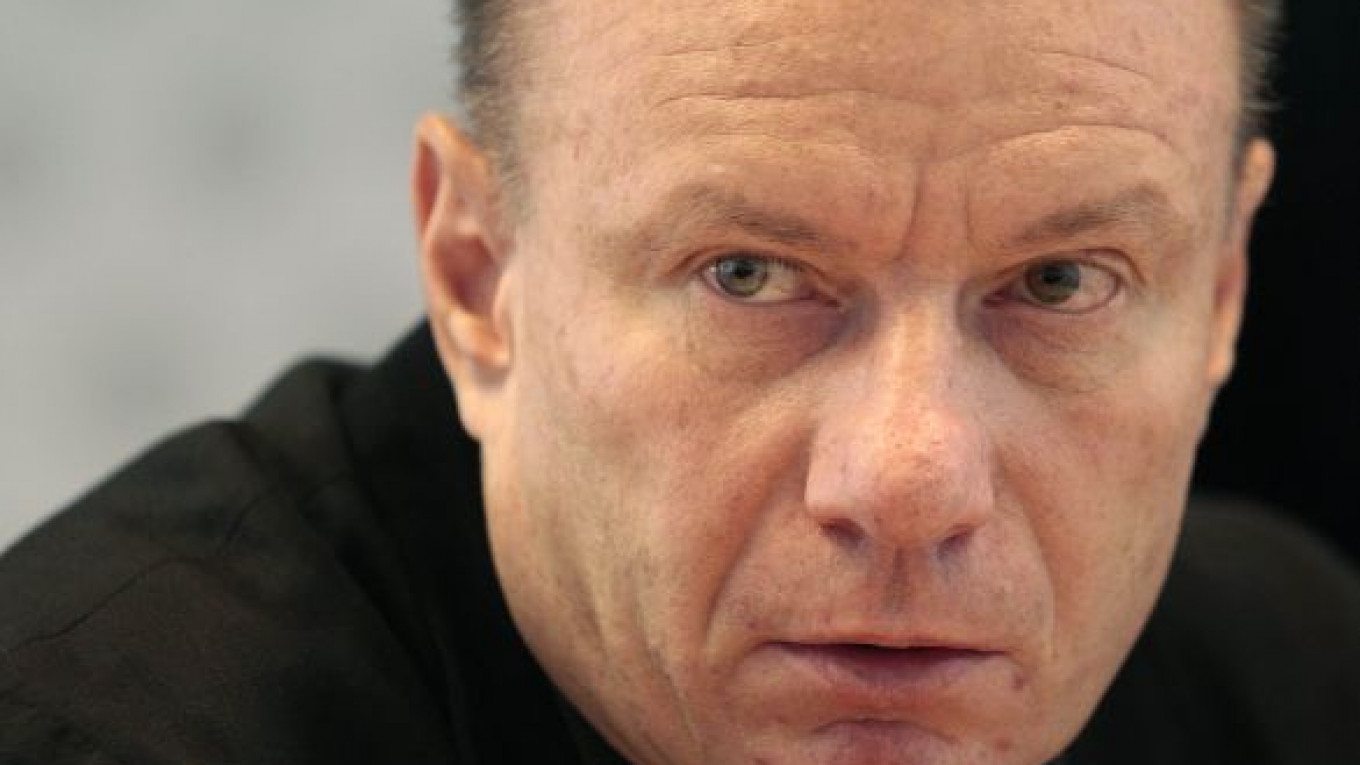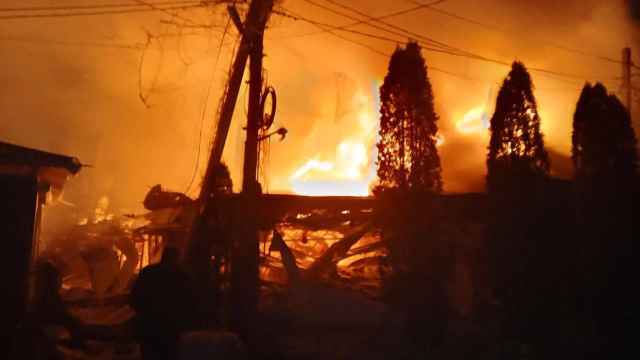Prosecutors found violations in the conduct of an annual shareholders meeting at nickel miner Norilsk Nickel, Prosecutor General Yury Chaika told reporters Wednesday.
United Company RusAl, owned by CEO Oleg Deripaska, has said RusAl unfairly lost a board seat at Norilsk's shareholders meeting and has challenged the result in a British court. President Dmitry Medvedev ordered prosecutors to investigate.
"Internal corporate regulations were violated," Chaika said. "We found procedural violations in how the shareholders meeting and voting were conducted, so we reported on our findings to the president."
Norilsk denied knowledge of any violations.
"We have not received any messages on the investigation into the meeting's results, other than [what] the Prosecutor General's Office had already sent, with no points of criticism," a Norilsk spokesman said.
Prime Minister Vladimir Putin said during a visit to the plant in late August that Norilsk's warring shareholders, RusAl and Vladimir Potanin's Interros investment vehicle, had made progress in settling their dispute over the world's largest nickel and palladium producer.
But Potanin and Deripaska, along with Norilsk CEO Vladimir Strzhalkovsky, showed this week that their war of words was still in full force.
"I think there is a whole logic for them to stop abusing the other shareholders and play a normal game with all participants, employees, the government and shareholders," Deripaska said in an interview.
When asked whether Putin hinted that the dispute could be over soon, Deripaska replied, "I never heard anything like that."
Potanin, meanwhile, said Deripaska should come to terms with the idea that RusAl has no control over Norilsk — or sell out.
"Oleg needs either to get accustomed to the fact that he is a large, but minority, shareholder or he, in the interest of RusAl, conducts a sale," Potanin said in an interview.
Potanin said Interros, which owns about 25 percent of Norilsk, might find enough money to buy the stake alone or jointly with Norilsk Nickel and other investors. The purchased stock could be used over time to increase the free float of Norilsk shares, he said.
RusAl, which also has 25 percent of Norilsk, accuses the company of inept management and waste. The world's largest aluminum producer had also said it had the right to a larger dividend payment.
Norilsk management, backed by Interros, accuses Deripaska of trying to bleed cash-rich Norilsk to pay off RusAl's debts of more than $12 billion, the largest of any non-state company in Russia.
"If a company is in good shape, it is paying its debts and honoring its obligations to creditors … then it is necessary to squeeze from it as much as possible for dividends and to demand loans from the company," Strzhalkovsky said in an interview.
In hopes of unseating RusAl, Strzhalkovsky said, Norilsk's pension fund is planning a buyout of its stake.
"The pension fund has launched an initiative to create a pool of investors to buy out RusAl's Norilsk stake," the executive said. "In principle, this is not a bad idea."
Strzhalkovsky said the pension fund, Norilsk and Interros could take part in the pool.
Deripaska reiterated that RusAl had no plans to sell and had also put on hold its previous plans to merge RusAl and Norilsk, at least until aluminum prices recover.
"You can't buy what isn't for sale, but things can change," Strzhalkovsky said.
Deripaska said he wanted to hold his stake and watch it rise in value.
"My view is improvements that could be done in less than six months could add $500 million to $600 million in EBITDA, and proper marketing could change investor assessment of the future value [of Norilsk]," Deripaska said. "This is what we need."
Deripaska calls Norilsk's marketing erratic, while Strzhalkovsky said sales were consistently above exchange prices and Deripaska was acting as a stalking horse for another RusAl shareholder, commodities trader Glencore.
Strzhalkovsky said he has recently complained to Putin about pressure from RusAl to change Norilsk's marketing policies and award most export contracts to Glencore instead of the current system of long-term deals with all global customers.
"Glencore's proposals turned out to be uncompetitive. … [Deripaska] may be willing to transfer [contracts to Glencore], but it would be against the interest of the company and Russia. I told the prime minister about it, and he fully supports me."
Strzhalkovsky said he was ready to go as far as asking the state to abolish tolling schemes for RusAl, which allows the company to import raw material and export finished products duty free and pay only a certain fee for processing.
"This question must be raised, and it will be raised," he said.
But Deripaska — who became synonymous with state intervention in 2008-09 when he was the biggest recipient of state funds to bail out his enterprises — said the state could stay out this time.
"I think it is a nice lesson," he said. "For everyone. The company should be managed properly, without any government interference, and we can bring [it] back on track. And actually, we are not in a hurry."
A Message from The Moscow Times:
Dear readers,
We are facing unprecedented challenges. Russia's Prosecutor General's Office has designated The Moscow Times as an "undesirable" organization, criminalizing our work and putting our staff at risk of prosecution. This follows our earlier unjust labeling as a "foreign agent."
These actions are direct attempts to silence independent journalism in Russia. The authorities claim our work "discredits the decisions of the Russian leadership." We see things differently: we strive to provide accurate, unbiased reporting on Russia.
We, the journalists of The Moscow Times, refuse to be silenced. But to continue our work, we need your help.
Your support, no matter how small, makes a world of difference. If you can, please support us monthly starting from just $2. It's quick to set up, and every contribution makes a significant impact.
By supporting The Moscow Times, you're defending open, independent journalism in the face of repression. Thank you for standing with us.
Remind me later.






